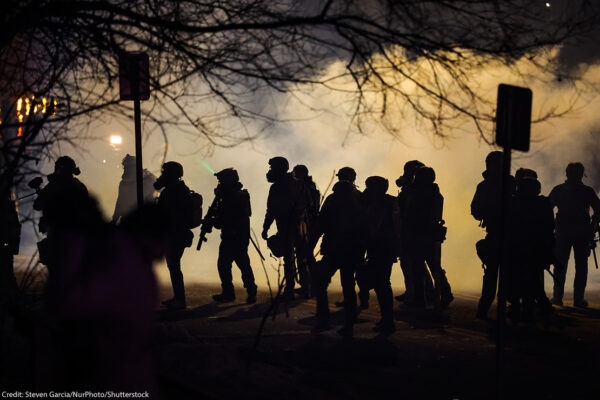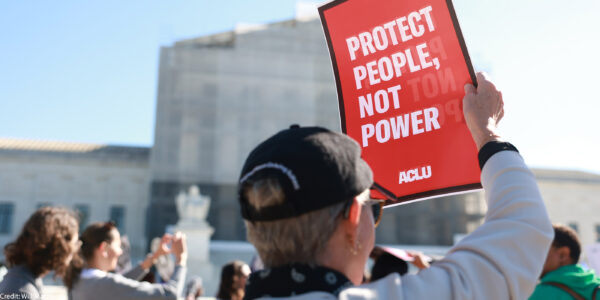
In what state did a hidden cameraman capture police using excessive force and seizing the cameras of those attempting to film the encounter?
How revealing is metadata?
A new business model adopted by what Internet provider puts network neutrality at risk?
True or false: fallacies - like the myth that prisons are country clubs where the incarcerated spend their time watching football games in air-conditioned cells - affect the decisions made by jurors to sentence someone to the death penalty.
What two government agencies released guidelines this week to prevent race discrimination in school discipline?
Hidden Third Cameraman Proves Crucial in Nebraska Photographer-Abuse Case
This week the ACLU of Nebraska sued on behalf of an Omaha family after thirty-two officers stormed the family home, assaulted members of the family, and stole two cameras used by family members to film the encounter. The incident may well have never come to light had not a third person, filming from an upper window in a house across the street, also recorded the incident
Graphs by MIT Students Show the Enormously Intrusive Nature of Metadata
You've probably heard politicians or pundits say that "metadata doesn't matter." They argue that police and intelligence agencies shouldn't need probable cause warrants to collect information about our communications. Metadata isn't all that revealing, they say, it's just numbers.
But the digital metadata trails you leave behind every day say more about you than you can imagine. Now, thanks to two MIT students, you don't have to imagine—at least with respect to your email.
New AT&T Fees Threaten Openness of the Internet
Ars Technica reported this week that AT&T has confirmed it will allow web sites to pay money so that data downloaded from those sites will not be counted against customers' monthly data caps.
At stake here is Network Neutrality, which has been usefully defined by Public Knowledge as "The principle that the company that connects you to the internet does not get to control what you do on the internet."
The Truth About Choosing Between Life and Death
Serving life without parole is not the big easy. Prisoners who are sentenced to live behind bars every day until they die are not spending their hours watching football games in air-conditioned cells.
But imagine if you didn't know that. Imagine that all you ever heard was the false tale, so often depicted in the media, that incarceration until death is like being locked in a country club. If you'd never heard the truth that being sentenced to a small, sometimes crowded and sometimes painfully isolated cement cell means suffering every day, it would be hard to know that life without parole is an extreme and excruciating punishment.
Is Race Discrimination in School Discipline a Real Problem?
The Department of Justice and Department of Education announced this week what we have known to be true for a long time: yes, race discrimination in school discipline is a real problem.
Learn more about your civil liberty issues: Sign up for breaking news alerts, follow us on Twitter, and like us on Facebook.



